Exclusive Interview with Robbie Thompson: A Supernatural Memoir from B. G.’s Canteen – Part 2
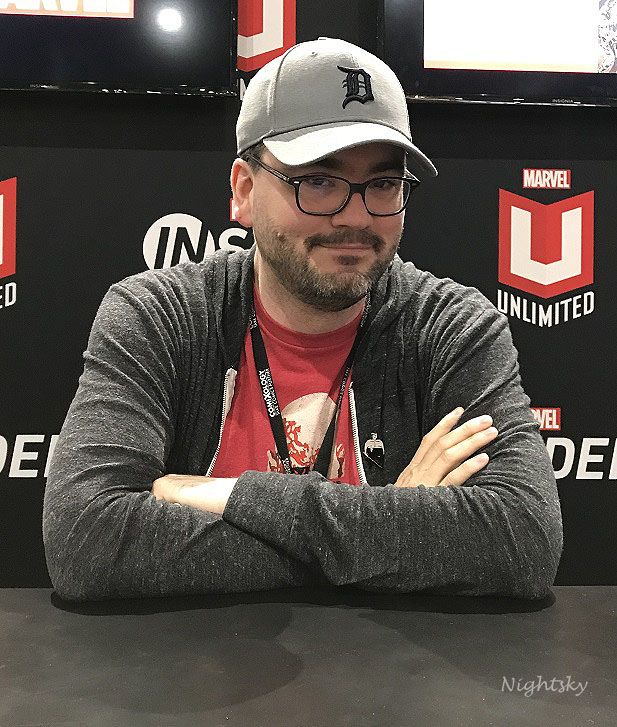
Robbie Thompson is largely considered by Supernatural fans to be one of its most creative, talented writers. From 2011 to 2016 (season 7 through 11), Robbie wrote 18 episodes, including the series’ milestone 200th episode (“Fan Fiction” 10.05), and co-produced a total of 94 hours of the series. His beloved characters and imaginative plots forever changed the course of Supernatural‘s storyline. After penning one of Supernatural’s most pivotal episodes (“Don’t Call Me Shurley” 11.20), Robbie left Supernatural to join the Marvel universe as a writer of science fiction comic books.
I had the distinct honor of sitting with Robbie at his Marvel signing table during the 2019 Chicago Comic and Entertainment Expo (C2E2). We talked about writing for Supernatural, the creative decisions behind his many outstanding episodes, and the twists and turns of his career. The interview, which was planned to last approximately an hour, ended up extending over two full days at C2E2, then continued months later at San Diego Comic-Con. Our conversation was casual, fluid and candid, as Robbie shared his thoughts between signing collectibles and posing for fan photos.
If things really do happen for a reason, this turned out to be the most fortuitous timing possible for us to be together (at least for me). When the interview began, we were blissfully ignorant that Friday, March 22, would be the day that changed everything for the Supernatural family. Start with Part 1 of the interview, then continue here for more of Robbie’s insights on Supernatural!
For reference, the following were Robbie’s Supernatural episodes, roughly categorized as either standalone (also referred to as “monster of the week”) or myth arc stories:
|
Standalone Episodes |
Myth Arc Episodes |
|
7.12 “Time After Time” |
7.06 “Slash Fiction” |
|
8.04 “Bitten” |
7.20 “The Girl with the Dungeons and Dragons Tattoo” |
|
8.11 “LARP and the Real Girl” |
8.17 “Goodbye Stranger” |
|
8.20 “Pac-Man Fever” |
9.11 “First Born” |
|
9.04 “Slumber Party” |
9.18 “Meta Fiction” |
|
10.05 “Fan Fiction” |
10.18 “Book of the Damned” |
|
10.11 “No Place Like Home” |
10.20 “Angel Heart” |
|
11.04 “Baby” |
11.11 “Into the Mystic” |
|
11.16 “Safe House” |
11.20 “Don’t Call Me Shurley” |
I hope you enjoy this peek inside the brilliant writing mind of Robbie Thompson, and the inner workings of creating Supernatural‘s magic.
A Supernatural Memoir from B. G.’s Canteen – Part 2
Friday, March 22, 2019
In the first part of our interview, Robbie talked about how the Supernatural writing staff, and he specifically, created episodes’ stories. Rather than focus on each of his episodes separately, I tried to understand what makes Robbie’s stories distinctive and apart from other writers’ work. What I uncovered were seven themes that Robbie effectively used to draw the audience into each of his hour-long shows. The first two stylistic components (covered in Part 1) were time travel and exploring places that make characters feel at home. We rejoin our conversation here with the remaining episodic elements.
“Details are what make a story great.”
Robbie’s Storytelling Elements
aka Robbie’s Writing Master Class Continued*
Incorporating Classic Stories from Literature or Film
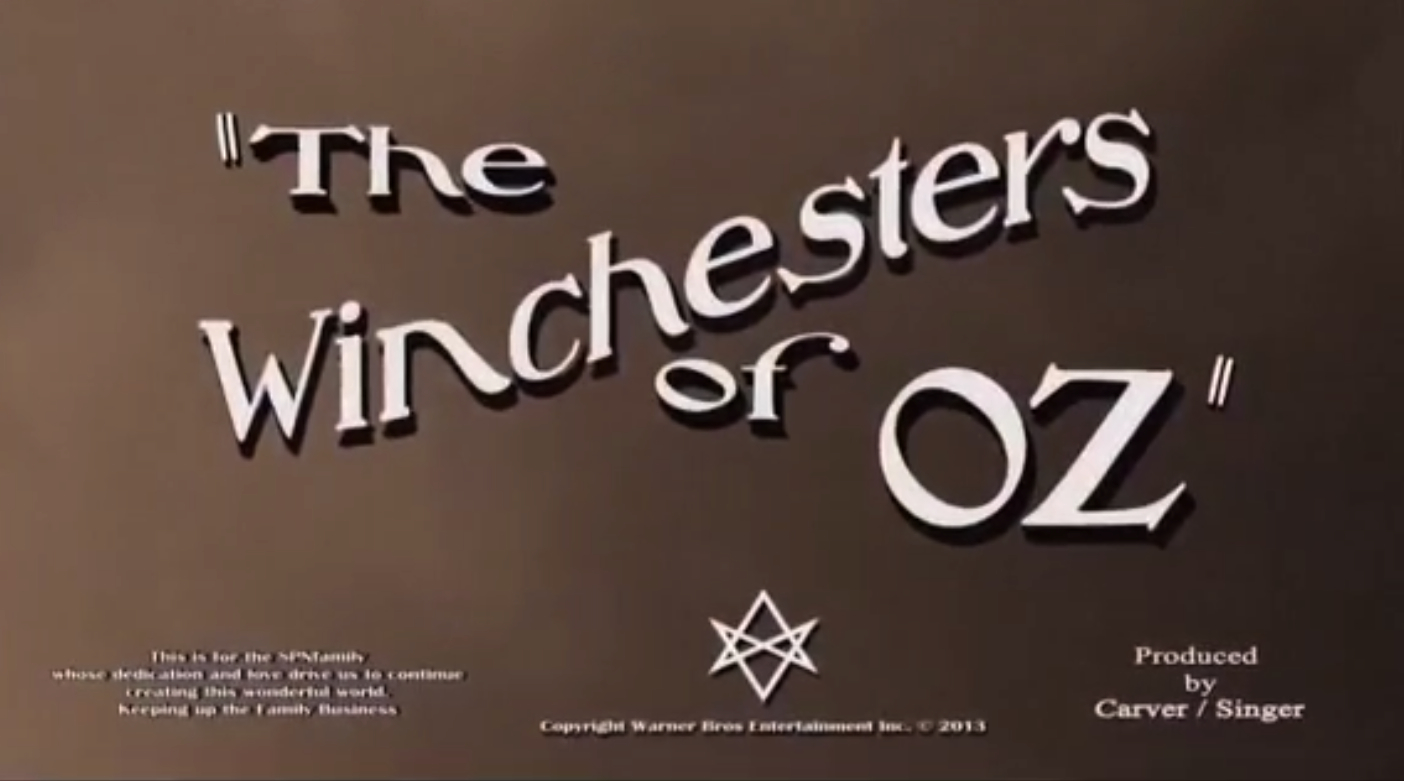
Nightsky: Third style element: You used timeless, epic stories like Untouchables, Wizard of Oz…
Robbie: Yeah.
Nightsky: You took stories that had a pop culture meaning, and you built on those. You even [used] a video game. You were again making the setting of the story into part of the story.
Robbie: Yeah.
Nightsky: Were you consciously doing that? Was there something pulling you into those classic stories or those fantasies?
Robbie: Yeah, I think when you’re touching on other stories within the framework of another story, you’re trying to—or at least, I was trying to— echo. We talked about it in the 200th episode. The story of Sam and Dean and all the characters in Supernatural is its own epic story and to tie it to other epic stories felt like, “Hey, we’re up there with the big boys too.” I don’t know if I was necessarily consciously doing that, but looking back on it, it’s like, “Oh, okay, yeah!”
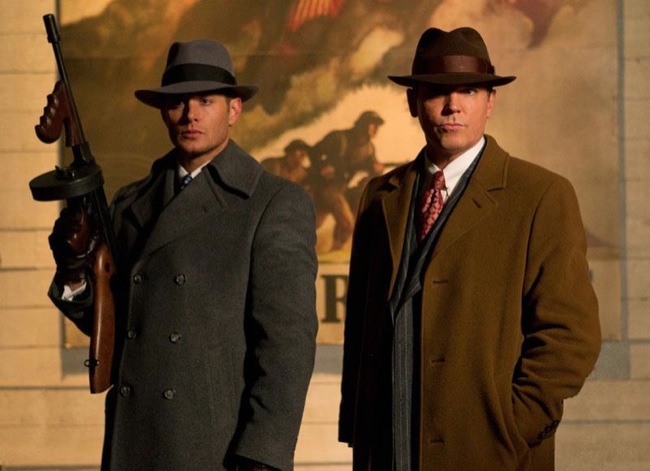
[Reflecting on “Time after Time”] I love the movie Untouchables. I think it’s a great movie. It’s a classic. We’re in Chicago; it’s a classic Chicago story, written by a classic Chicago writer [The Untouchables screenplay was written by David Alan Mamet, who was born in Chicago.1]. It was part of the iconography of getting [Jensen] in a suit, and knowing that I wanted to do that. I didn’t know the Men of Letters stuff was gonna happen. Had I known that, that might’ve affected that decision a little bit differently. Maybe Eliot Ness would’ve been a Man of Letters rather than a hunter, because it seems like he might’ve been more of a fit for that. Yeah, I think you’re always—whether you’re consciously or unconsciously—thinking about these things.
Then, like I said, there’s a lot that just comes from a practical standpoint. I know I need to live for fifteen pages on the set. So, that set has to have meaning; it has to be something we can talk about, or something that looks cool visually, because I gotta set fifteen pages there. That’s why I always love sets in Baby. We already build it, and as pretty as Baby is, it’s gonna be close-ups of Sam and Dean, or Cas, or whoever else is rotated into that car. You’re not gonna get a prettier set than that—close-up of those characters! So, some of it is just a practical decision that takes on meaning in the context of the story. But I always say for people wanting to get into TV, you’ll be shocked how many of your decisions are just practical. They’ll take on meaning—they may take on meaning you never intended, or they may take on more meaning as a result of what happens on those days—but a lot of times it’s just, “I need this location.”
Nightsky: But it wasn’t a throwaway for you.
Robbie: No, no.
Nightsky: A lot of times, the location or the setting is just background.
Robbie: Yeah.
Nightsky: …but you used every part of the story, including the location and the setting, and what it meant to you.
Robbie: You know, you get thirty-eight pages. I’m working on a comic now called Meet The Skrulls, and it’s twenty pages. I get five or six panels a page. I have to pour everything I can into all those panels.
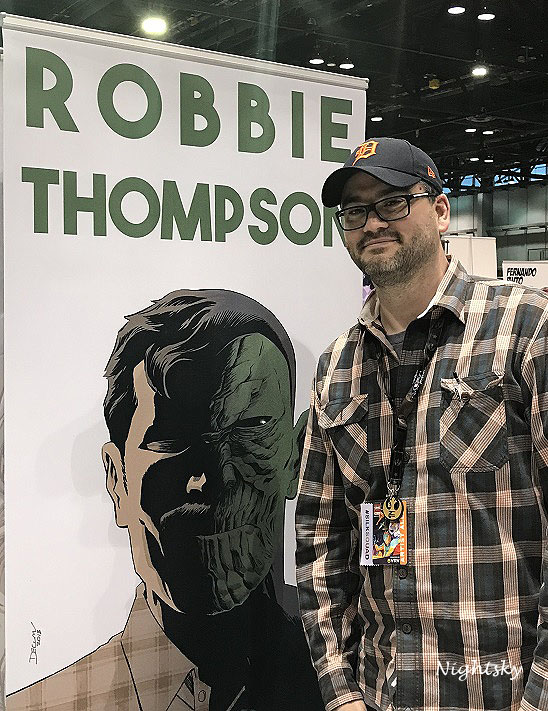 Robbie with a poster of his Marvel Meet the Skrulls comic (C2E2 2019)
Robbie with a poster of his Marvel Meet the Skrulls comic (C2E2 2019)
It’s no different when you’re working on a TV show. I got thirty-eight, thirty-nine pages. We had much shorter scripts than most scripts – usually they’re in the fifties. And there’s a lot of banter on our show, and jokes and stuff. Anything that’s wasted is wasted. We don’t have a ton of money to make these kind of shows, so any little thing we can do to add a little bit of meaning, or to have a little bit more intention behind it. I was always very careful about the songs I picked to make sure that we could get them but also whether or not they have a little bit more meaning. So sometimes the decisions came from practicality. When it was possible and we could afford it, to do it with intention? Yeah, absolutely.
Nightsky: After a signing interruption, I circled the conversation back to my question about classics. You were saying that you wanted to place Supernatural alongside other classics.
Robbie: Yeah, again, I think 95 percent of it was because I just wanted to play with those toys – playing with the Wizard of Oz toys, playing with Untouchables—like Eliot Ness as a character. The original pitch for that episode involved a case that he was involved with in real life, which was the basis of the Brian Michael Bendis comic book Torso2, in which he was hunting essentially a serial killer in Ohio. So I [thought], “Oh, what if that was the monster?” and we were off to the races. So I think also, some of it was… you set Sam and Dean in context of some of these historical figures and it’s like, well, they belong alongside those characters as well. So, yeah. But mostly it was just to get them in the hot outfits!
Creative/ Non-Traditional Formats
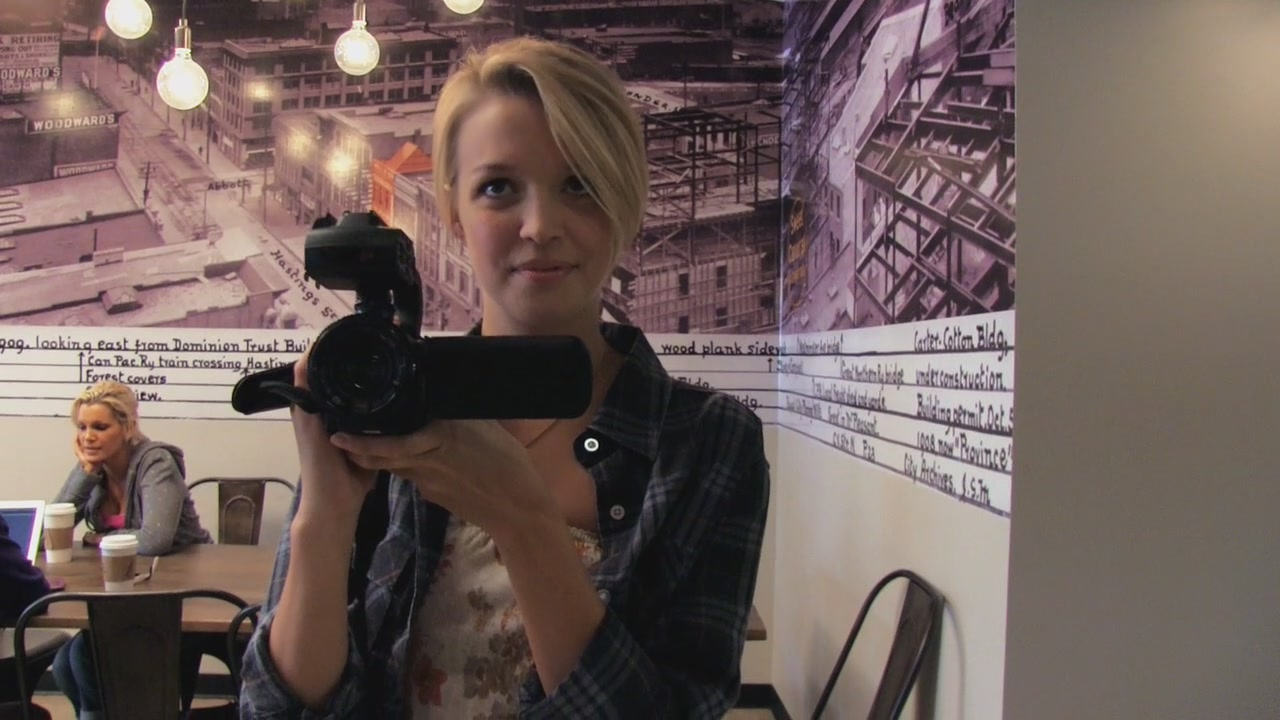
Nightsky: The fourth style element is using non-traditional formats. You wrote the found footage episode [“Bitten” 8.04], which you mentioned. You said part of that was “How far can I push it? Where can I go with it?”
Robbie: Yeah. Well, also for that one, I like sympathetic monsters. It’s hard, but if I was a monster, I wouldn’t think I was a monster. I would just be doing monster things, and Sam and Dean would be scary to me. So, I [wondered], “What would it look like from their perspective?” That was where the idea came from. Then, the idea of “Can we shoot something nontraditional visually?” So yeah. That’s where that one came from.
Nightsky: Again, using the background and the format as a part of the story.
Robbie: Yep.
Nightsky: Supernatural had a long history of meta—
Robbie: Yes!
Nightsky: —hence the books! You decided [to continue the show’s tradition and] go into the meta, which is a non-traditional method of storytelling.
Robbie: Yes. I went hard and unfortunately never came back!
Nightsky: Did you specifically want to do a meta [episode] or were you asked to do meta?
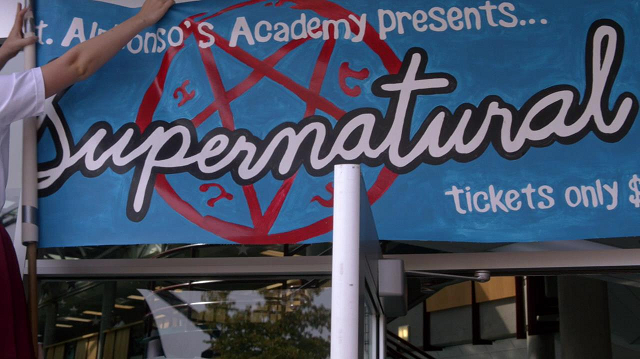
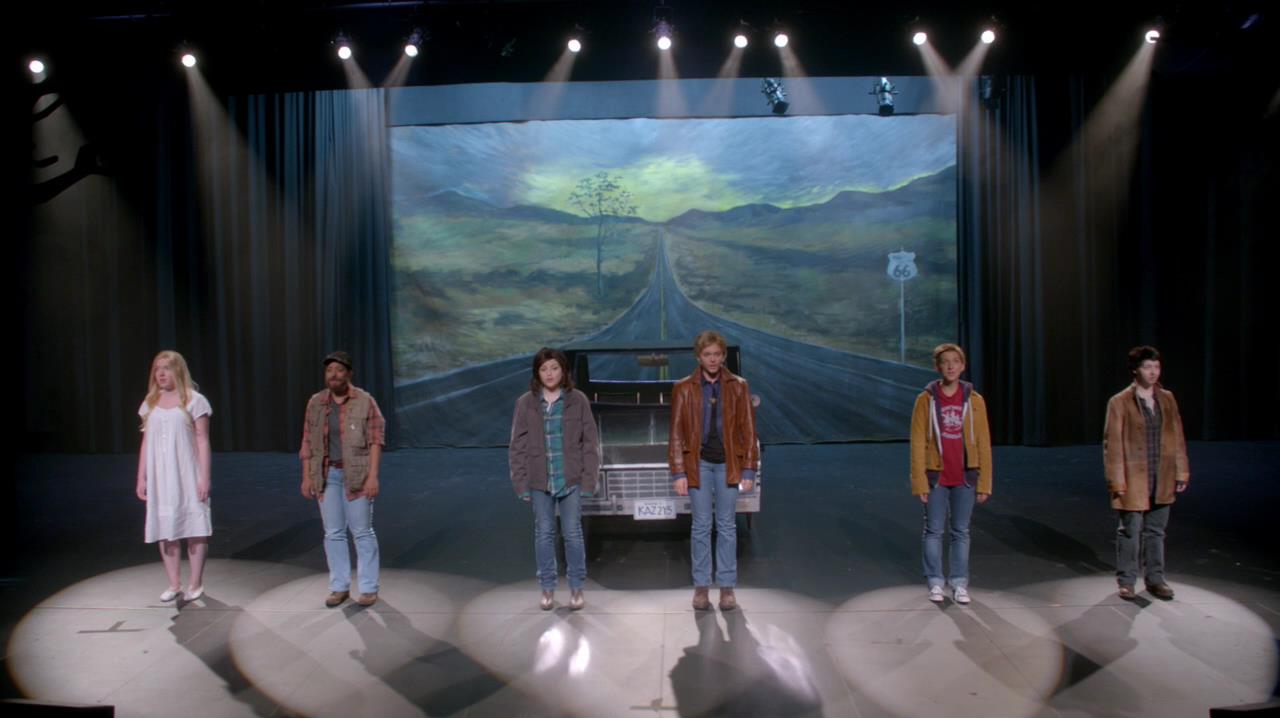
Robbie: It depends on the context. For example, the 200th episode [“Fan Fiction”] was not my idea. Jeremy and Bob had an idea about setting it in the high school musical based on the books. I was like, “Great. That sounds terrible. Can I write it?” because on paper you’re like, “Oh, sh*t. That’s gonna be a nightmare!” but I thought it was such a fun, weird idea. Some people pointed out to me that you could so easily [colorful phrase here that meant epically fail] on something like that, and that was fun. The scariness of that was fun.
Other times, it would be stuff that was sent my way that just kind of happened, by way of the nature of it. I always look at the show as you have to honor the history that’s come before you. Kripke and the rest of the gang—Ben and Sera—they leaned hard into the meta really early on. To ignore that I thought would’ve been a betrayal to the show’s history, but also not the show. So specifically on something like the 200th episode, I was like, “Well, if we’re going in, we gotta go! I’m not dipping my toes in there. I’m gonna go in full-hog. I may drown but I’m gonna go as hard as I can” because the show had. To not address it would be to delete the history of the show. It seemed kind of silly to me. I’m not saying I succeeded, but that was my intention.
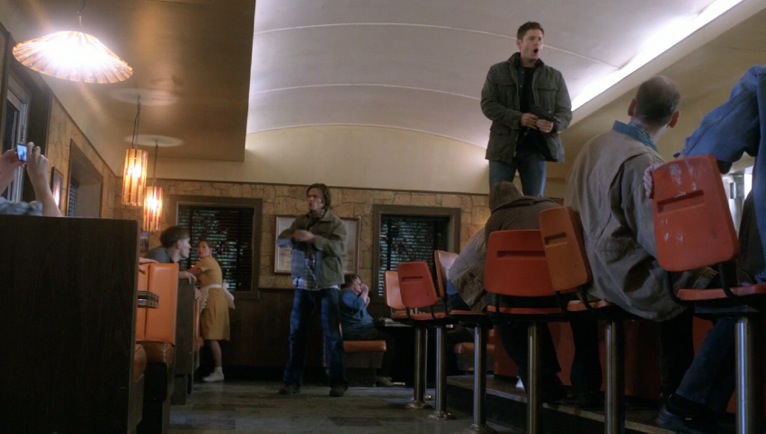
Other things, like the episode titles? “Slash Fiction” – I don’t think I came up with that title. I think it might’ve been Andrew [Dabb] or Jenny [Klein] [who named it] because it was just kind of funny, we thought it was funny, but I think that branded me early on as a meta writer, but it wasn’t really my intention.
Nightsky: Then you went with Metatron.
Robbie: Yes.
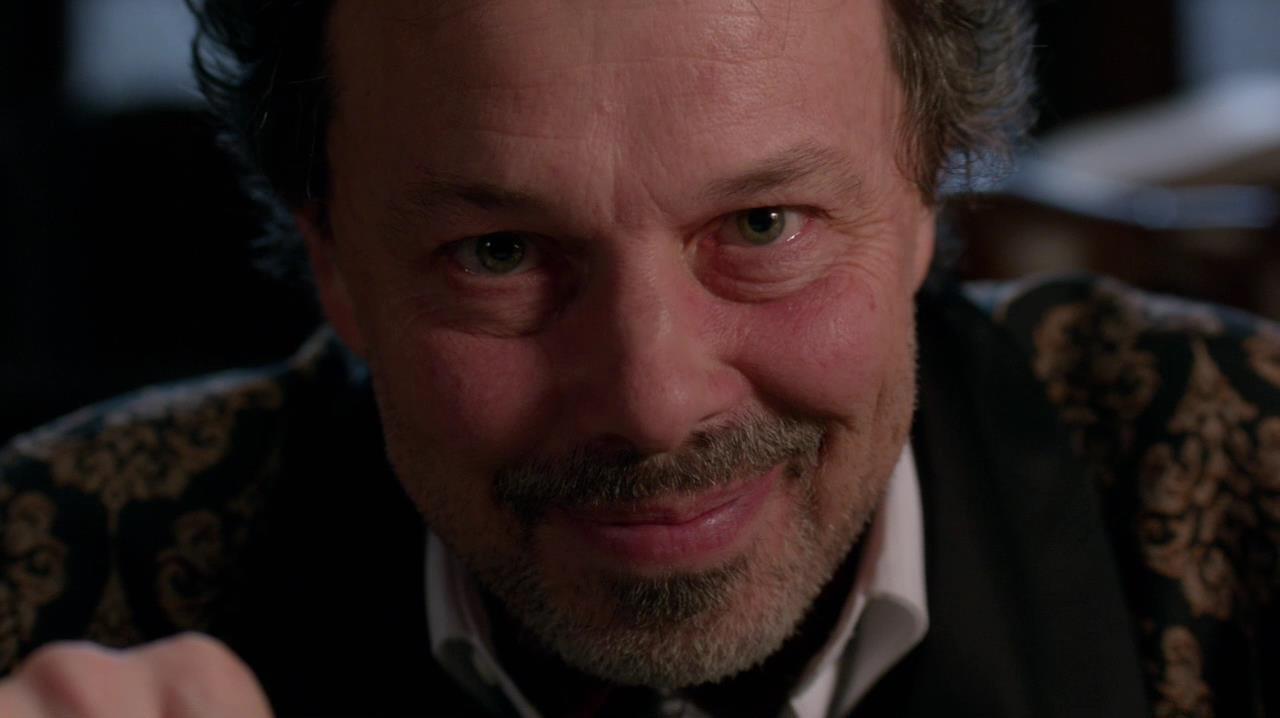
Nightsky: In “Meta Fiction” (9.18) you cold-start to him talking. You think he’s talking to the fans, but he’s talking to Castiel. But you don’t know that until later.
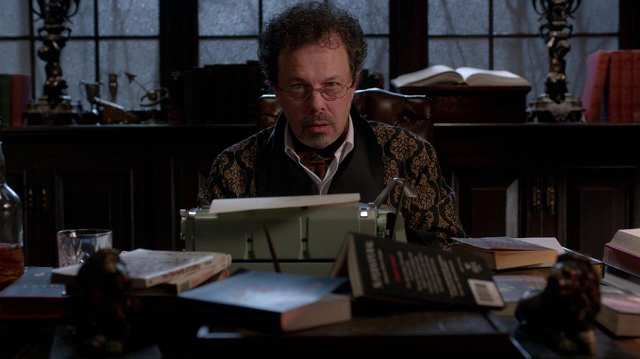
Robbie: No. Which was all intentional. That’s 100 percent me, and me being foolish. I can’t blame anyone for that one but me. But also, it was hard at that point – his name’s Metatron—it felt like metafiction. He was also a student of stories, and I was like, “That was established before me. I can’t not address this. I can’t not lean hard into that because that’s the text of the show.” So, it just felt natural.
[When] I was in Las Vegas, I took my mom to see Jersey Boys. I had the same reaction I think a lot of people do to those kind of shows, i.e. “Oh, I didn’t know this was a Frankie Vallie song!” That song came on—“The Sun Ain’t Gonna Shine (Anymore)”—and I just couldn’t get it out of my head.
Nightsky: Which has been going through my head for a week [since I rewatched the episode]! I cannot get it out of my head. I love the song!
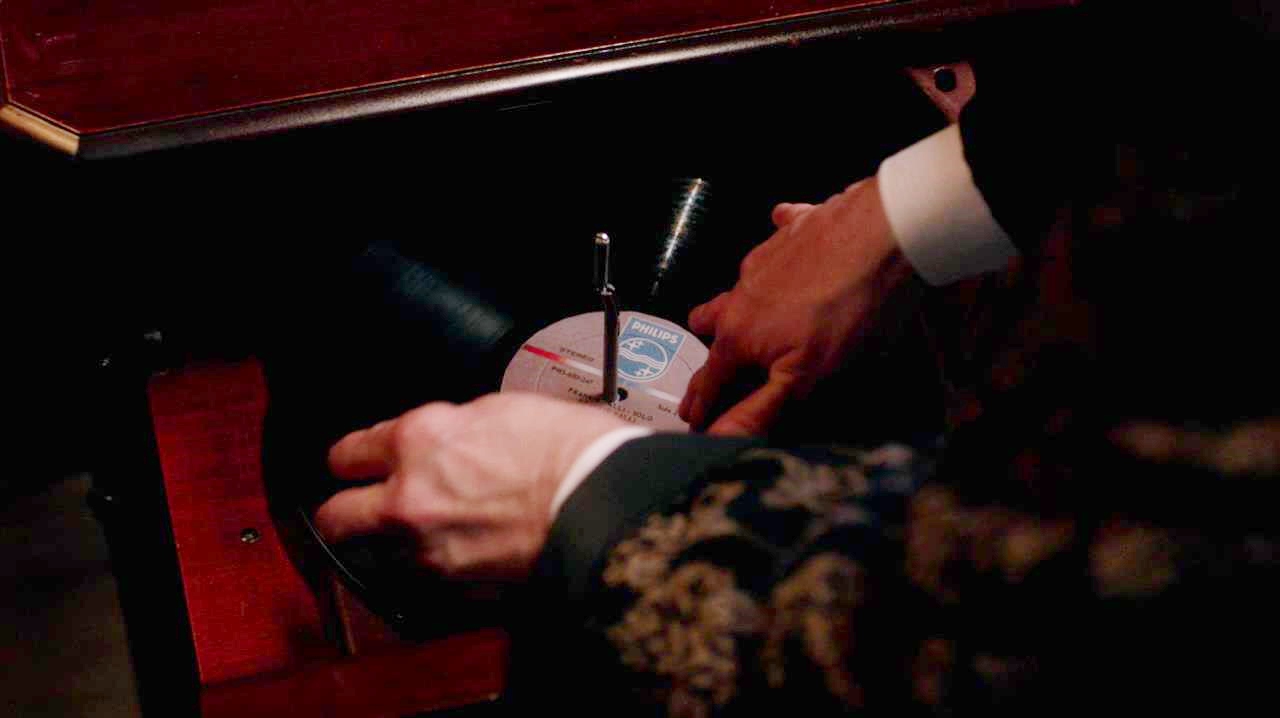
Robbie: It’s a great song. There’s a weird quality to that song. It’s catchy, it’s poppy, but it’s really sad. I felt like that’s where we were in the season. There’s no extra meaning to it. People were parsing the lyrics, but I was like, “Nah, I saw a show in Vegas.” That’s not to say their interpretation is wrong. Their interpretation is way better than mine, but it just felt like the appropriate song at the end. It felt like Metatron would dig some older tunes. But, yeah, the meta stuff – sometimes I love it, and sometimes I hate it because it’s a real… if you’re a baseball fan, “Live by the long ball, die by the long ball.” – it’s a big swing. If you hit it, it’s really fun. If you miss, man, it’s bad. It’s really bad.
Nightsky: {awed by the courage it takes to take a big swing in writing} There’s no going back from that one.
Robbie: There’s no going back. It’s hard to go back. I leave it to people much smarter than me to decide whether or not I was successful at all.
“Baby” was another of Robbie’s stories that was based on and filmed in a non-traditional format. We had previously discussed that episode, so I didn’t bring it up again here, choosing instead to transition to the next element.
Music
Nightsky: So let’s talk about music [the fifth consistently present element in Robbie’s episodes].
Robbie: Sure.
Nightsky: What part does music play in your storytelling? I will preface that with—having watched, not all eighteen, but pretty close to all eighteen [of your episodes]—amazing music: one after another after another. It was not something I’d ever noticed before because other episodes would have good music, but every one of yours had great music. So what part does music play in your storytelling?
Robbie: Music is a big part of my writing process. I like to write to ambient music or soundtracks. As I mentioned before, music is just something very magical to me. I’ve worked in a lot of different mediums, and I’ve seen behind the curtain. Once you’ve seen The Matrix, you’re like, “Oh, it’s the matrix.” Whereas music has just continued to be a mystery to me. Specifically with the episodes, for me, it’s about honoring the show, and the show has a history of pretty awesome needle tracks. It’s got some of the best music cues.
It’s also the kind of music I grew up listening to. Like Kripke, I’m a Midwestern kid. Basically in Detroit you listen to Motown and classic rock. So all those sounds [are] the soundtrack of my childhood. So a lot of times when I was writing an episode, I’d be like, “What’s a song that we can put in here that will evoke the kind of feeling that I had watching those early episodes?”
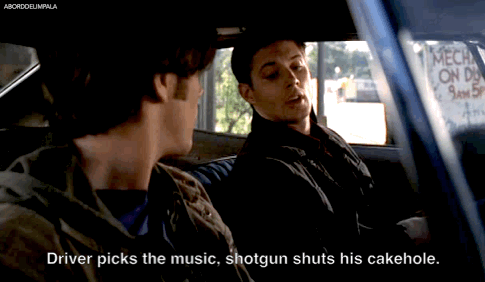
It’s always been a road-trip show. It’s always been a road-trip show, and in a road-trip show, “Driver picks the music. Shotgun shuts his cakehole.” That’s a road trip; that is a key part of it – the music that you listen to. I grew up in an era of tape decks, so I loved the fact that they had a tape deck. So there was always at least a desire on my part to put a song in, if it was possible. But I also really like ending episodes with songs because you end more on a feeling than a piece of dialogue or whatever.
Nightsky: And it sticks with you.
Robbie: Yeah, and it sticks with you. It sticks in your brain. With “Goodbye, Stranger” [the song, in the episode by that same title, 8.17], I’ve always loved that song. I wrote a feature in college that ended with that song. It’s got a cool repetition to it but it’s also lyrically and musically very much in tone with what was going on in the episode.
It’s tough sometimes. You pick these songs, and people dissect what the lyrics are supposed to mean or maybe mean, and that’s totally cool, but sometimes it was just the feeling. It’s a huge part of the show, so to me it was a huge part of writing the show—trying to find those songs.
It’s tricky because the songs are expensive. You have to be careful with writing a song in. You don’t want to be married to it because you might not get the rights. There was a song, which shall remain nameless, where we just never heard back from [the band] so we couldn’t use it. There was [another] song that I loved, loved, loved, loved, and was so bummed that we didn’t get it, but they actually responded to us in kind, and said, “Hey, thanks very much, we’re deeply flattered, but we’re not licensing any of our music right now.” That was a bummer, but you move on.
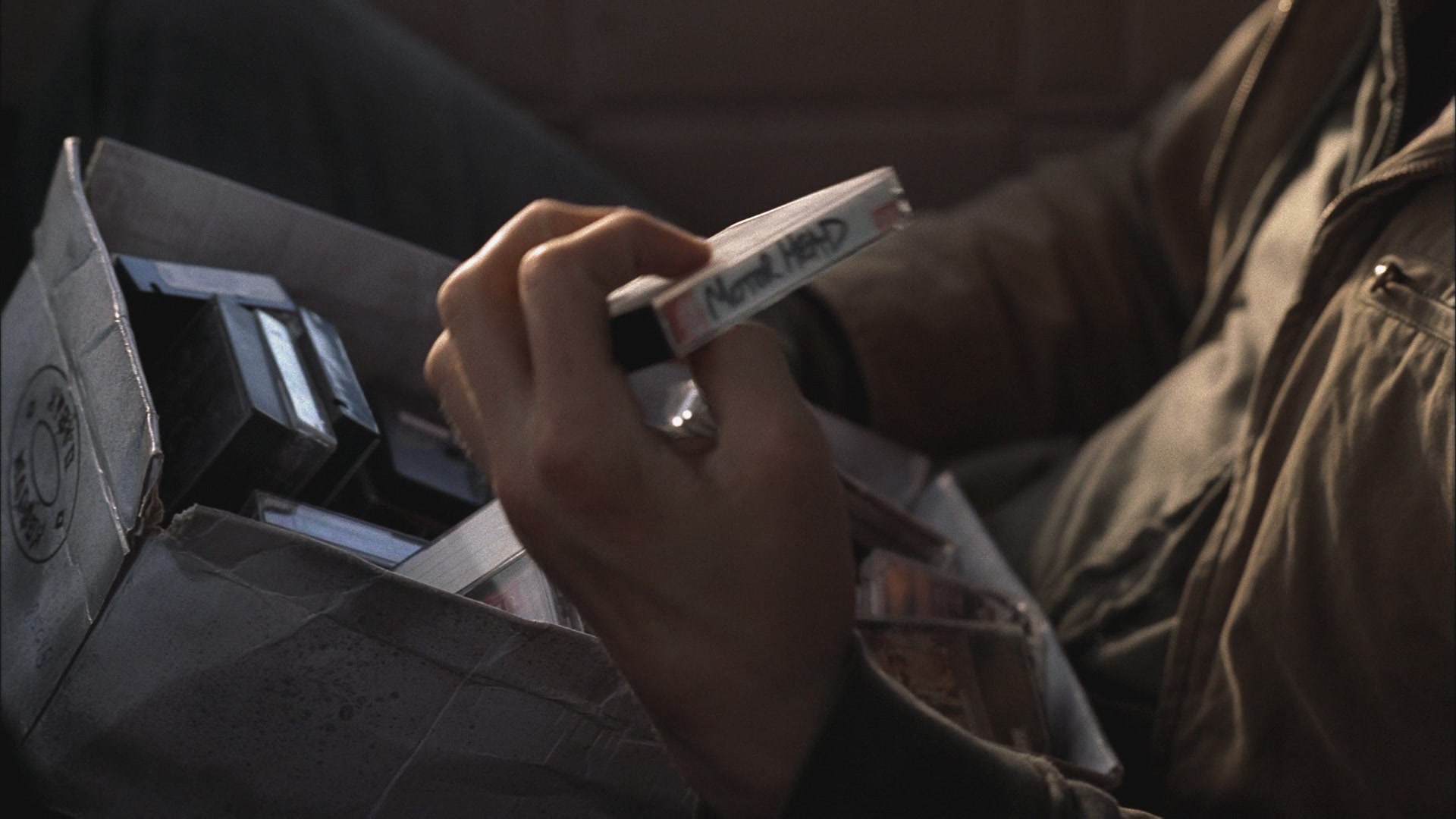
Some are songs from my own childhood that really resonated, and I was like, “Maybe if this resonates for me, it’ll resonate for other people.” But I was always really conscious of the show’s history because the soundtrack of their lives are Dean’s boxful of tapes. That’s why in “Baby” I thought, “We’ve got to have tunes in this episode.” I wanted the tune that maybe you wouldn’t expect to hear in the car and then you’d learn why you never heard it in the car – because it wasn’t a tune that was in heavy rotation for them – but it was a song that they remembered from their youth. So it’s again pulling off the history of the show but within that history, [the history] of the characters.
Nightsky: “Walking on Sunshine” [“The Girl with the Dungeons and Dragons Tattoo”]…
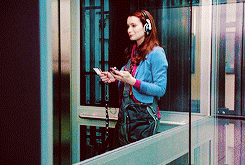
Robbie: “Walking on Sunshine” is Charlie’s. So,very specifically, we had a character that we wanted to introduce, and we wanted people to like right away. I thought it would be fun to show her in a private moment. We’ve all had that moment where we’re rocking out to a song and we didn’t expect anyone to uh . . .
Nightsky: …be at the stoplight next to us?
Robbie: Yeah! I don’t think I’ve ever shared this before, but I love that song. It’s like a song that if you catch me in my car, I will totally be rocking out to it. But it’s also… I used to just do a fake – it’s a great montage song [and] I used to do fake montages when I was in writer’s room! I would act it out; I would start singing the song like a moron (um, like a foolish person)! So it felt like the appropriate song. It was a song right away that was catchy, and you could associate it with her and you could associate it with having a good time. It was someone who was fresh from having a good night.
At this exact moment, Alana King (@_kingbooks_ online) walked up to Robbie’s signing table and told us that Jared, Jensen and Misha had just aired a video announcing the end of Supernatural. In a split second, I went from picturing Charlie’s euphoric “Walking on Sunshine” dance to having my stomach plummet through the floor. My mind went totally blank. Supernatural was ending. I physically couldn’t talk as my throat tightened to hold back the torrent of emotions that were fighting to fill my eyes with tears. The rest of Robbie’s afternoon was instantly transformed into a therapy session, as a dozen or so Supernatural fans suddenly congregated around him, migrating from wherever they had been on the convention floor when they heard the news, to the most obvious and intimate reunion of Supernatural family they could find. The SPNFamily instinctively was drawn to a person who would understand how much this show meant to us – to all of us, him included. He had brought our beloved show to life – he was one of the sparks in that lightning in a bottle – and for just a little while, he was our connection to a past that was soon going to fade away. Bless his heart, Robbie was generous and understanding, supportive and empathetic. He gave out hugs and reassurances, as he tried to console stunned, broken-hearted fans. Needless to say, the interview was over – at least for the day.
Saturday, March 23, 2019
My time with Robbie the next day was very limited. He knew our interview on Friday had been abruptly cut short so he valiantly offered to finish our conversation even though he was extremely busy at his Marvel signing table. I was a little embarrassed at how I utterly fell apart on Friday, and I was still somewhat emotional and quite shaken by the news of Supernatural ending, yet there was so much more I had planned to ask him. We hadn’t even scratched the surface of the dozens of music selections he chose for his episodes! Ultimately, we were able to squeeze in just a few more questions. I chose to ask for clarification on two remarks he had made in prior interviews because they had struck me as being indicative of who he is as a writer.
“Okay. Real talk. This is still a safe place, right?”
Robbie’s Career
Nightsky: You said in a New York Comic-Con interview (Burlingame)3, “Working in TV has all been just an elaborate plan to get into comics.” Were you being serious?
Robbie: No. I did a panel at New York Comic Con on how to break into comics the Marvel way. They invited me to speak, and [asked], “Everyone tell your origin story, because it’s comics, so what’s you origin story?” Everyone had these amazing stories about working for years and breaking in. I tried to get into comics when I worked in animation because everyone was drawing and I was like, “Let’s do comics” but I couldn’t afford to pay anybody and everyone was busy. I didn’t give up on it but 10-15 years went by. Cut to, I’m working on Supernatural, and I did a couple tiny [comics] here and there, small short stories.
It turned out Ellie Pyle, who was an editor at Marvel Comics at the time, happened to be a Supernatural fan – like a BIG time Supernatural fan. She knew Joe Henderson and Mike Costa. They are both TV writers. I was friends with them. We were all assistants way, way back in the day. Joe is [now] the showrunner on Lucifer. Mike is a comic book writer and a TV writer now as well [also for Lucifer]. So Joe had met Ellie at some party. She mentioned Supernatural; he mentioned he knew me. Then we just struck up an email conversation just as friends. Then she was like, “Would you want to write a little short for Marvel?” I was like, “Oh great! Do I pay you?? How does it work?” She was like “no, no!” She was basically auditioning me for my first Marvel book, which was Silk. So I joke about it. It was kind of funny at that panel because everyone was telling their stories, and I was like, “Well, I guess my advice to you kids is ‘go get a job on television! Go write for Supernatural and make sure that Ellie Pyle sees your work and likes it!”
Supernatural has been an incredible gift to my life, or however you want to say it. I owe Supernatural a lot. Certainly one of the things I owe them is getting me through the door at Marvel Comics.
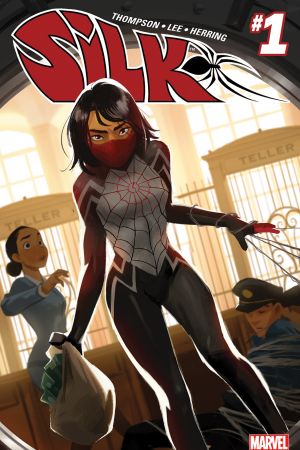
Nightsky: I looked on the Marvel website. I don’t know if this is right but it said you’ve written 92 issues for them so far.
Robbie: I think it’s 100+! That’s a lot of comics. I love it. It’s a lot of fun.
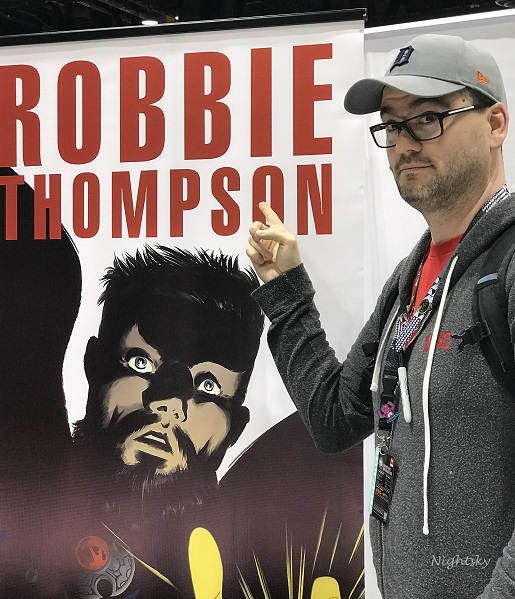 Robbie with a poster of his Doctor Strange and the Sorcerers Supreme comic (C2E2 2018)
Robbie with a poster of his Doctor Strange and the Sorcerers Supreme comic (C2E2 2018)
Nightsky: A while back you also said you’d like to direct.4 I was going to ask you …but that no longer applies, so cut that…
Robbie: Hey, we don’t know!
Yeah, I choked up here. I had planned to ask Robbie about his future career plans and coming back to direct Supernatural during his promised return in season 20 but I needed to quickly change the subject because the emotions were still too fresh about Supernatural ending.
Nightsky: Also at New York Comic-Con, you said you regretted that other people didn’t write episodes for Charlie, and that you wished they’d bring her back so other writers could explore her as a character. (Paulina)5 How did you learn that Charlie would be coming back to the show? Did you see the ‘Alternate Universe’ (AU) Charlie episodes? What are your thoughts on bringing her back in the AU?
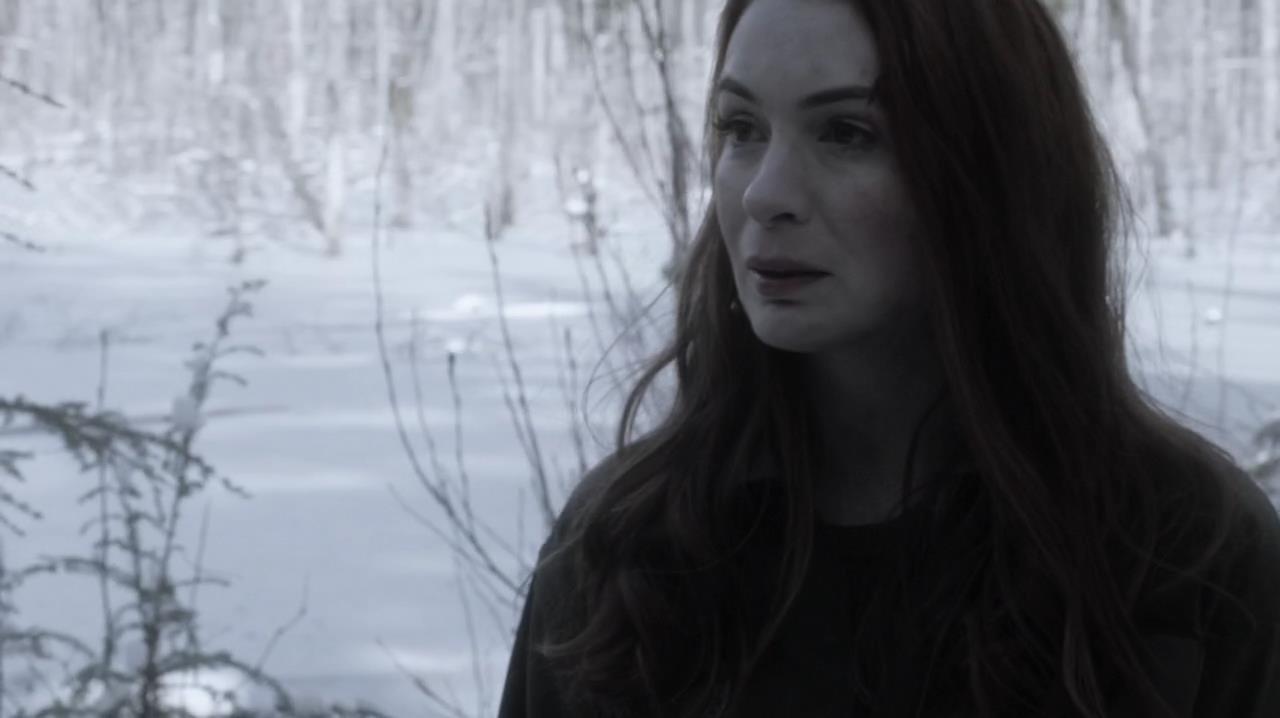
Robbie: As soon as I heard about the premise that they were opening up [the plot] to alternate universes, I thought that was great! One of the things I think Supernatural does really well is that no one ever really dies and it’s always, “How are they going to bring them back in an interesting way? How can we make it different? How can we make the death still impactful?” I think that alternate realities – we’re at a comic book show, so I am obviously a fan of different Earths and things like that – so I thought it was a cool idea. It was a great opportunity, whether it was Felicia coming back or any other actor coming back to play the part that they’ve played for so long and be able to put their own, new spin on it. I thought [it] was really exciting. It’s a great creative opportunity, especially when you have actors like they have on that show that are so talented, to get them to play characters with slightly different shades but still the character you know and love. That’s exciting and really cool, whether it’s Bobby or Charlie, that’s cool. I like it. I was psyched. I want to see them all back, though! It was a surprise [for fans] too. Nobody knew. I love when they surprise us.
Nightsky: You said that you hoped they would bring her back so that other writers could explore her character.
Robbie: Yes, 100%! I’m super thrilled that that happened, and I hope that she continues to thrive on the show as a character because she’s a great actor, and I think she brings, both as an actor and a character, really fun energy to it. It’s just fun to see what other writers – again, we’re at a comic show. Like 50 people here write Spiderman. They all bring a little different spin to it. I was completely honored to get to write for Charlie all those episodes but I also think it allows the character to grow when other people explore different parts of the character, so I was thrilled! I was excited!
For the second time in two days, talking about Charlie ended our interview. Robbie simply had too many fans who wanted to meet and talk with him, and he needed to devote some time to his Marvel characters and stories.
During our time at C2E2, Robbie had talked with me for just under an hour. We were together much longer than that, though, because he allowed me to sit with him and observe his interactions with fans and family. In that time, he saw an emotional side of me that is usually very well hidden away, and I saw a side of him that was compassionate, empathetic and selfless. I was shattered when I heard Supernatural’s news, as were other fans who gathered around Robbie. I worked valiantly to suppress my emotions because I’m not in the habit of crumbling into sobs in a public place, but I don’t think he was fooled.
Robbie’s writing gave us so many Supernatural treasures. It was eerily appropriate that he was with a fan, explaining his intuitive approach to developing its story, when we both learned that chapter in our lives was ending. I now believe more than ever that the beautiful moments he created for Sam, Dean and Castiel were glimpses into Robbie’s ability to perceive and translate into words the most basic essence of the human condition. His writing insights offer invaluable lessons into recognizing the bonds that unite us.
We started the interview as two professionals talking about his craft, but in one shocking moment, Robbie became the comforting presence we all needed, not because it was his job, his responsibility, or a convenient public relations opportunity, but because he saw people who were hurting. He shared with us his humor, time, love, and support. That will forever be what I remember about my time with Robbie Thompson at C2E2 2019.
Three months later, as we were individually planning our trips to San Diego Comic-Con, Robbie offered to meet with me again, to try, finally, to conclude this interview! I couldn’t believe that he was volunteering to resume this never-ending marathon discussion, but, of course, I eagerly agreed to meeting and talking with him again. Join us for the next segment of our journey in Part 3, where we explore in depth the characters and music in Robbie’s episodes!
Until then, please add your comments and questions below!
#ThankYouRobbie
References
- “David Mamet.” 25 June 2019. https://en.wikipedia.org/wiki/David_Mamet. 29 June 2019.
- “Torsois a true crime limited series graphic novel written by Brian Michael Bendis and Marc Andreyko, with art and lettering by Brian Michael Bendis. It is based on the true story of the Cleveland Torso Murderer, and the efforts of the famous lawman Eliot Ness and his band of the “Unknowns” to capture him.” – https://en.wikipedia.org/wiki/Torso_(Image_Comics)
- Burlingame, Russ. “NYCC: Supernatural Veteran Robbie Thompson on Marvel Comic’s Silk.” 13 October 2014. com. https://comicbook.com/2014/10/03/robbie-thompson-talks-silk/. 13 March 2019.
- My personal notes from Robbie’s panel at the “Celebration of Supernatural”, DePaul University, May 9, 2015.
- Paulina. “Exclusive Interview with Robbie Thompson: Nerding Out & Discussing Every Supernatural Episode He Wrote.” 19 March 2018. Nerds and Beyond. http://www.nerdsandbeyond.com/2018/03/19/exclusive-interview-with-robbie-thompson-nerding-out-discussing-every-supernatural-episode-he-wrote/. 15 June 2018.
B.G.’s Canteen was the setting of Metatron’s conversation with Chuck – “Don’t Call Me Shurley” 11.20
“Don’t Call Me Shurley” quotes courtesy of Springfield! Springfield!:
“Okay. Real talk. This is still a safe place, right?” – Metatron
Miscellaneous show details researched on Supernatural Wiki
An immense thank you to Chelsea for transcribing this interview!
Learn more about Robbie Thompson and his tips on writing:
*Robbie was the keynote speaker at a conference at DePaul University in Chicago, Il, in 2015. During a multi-hour presentation, Robbie gave what amounted to a “master class” in writing. Alice Jester and Nightsky reported on his lecture: DePaul Part 1, Part 2, Part 3
In 2016, Robbie answered fans’ questions about the show, his episodes and Supernatural’s characters during an hour-long panel at Chicago’s C2E2 convention. Nightsky was there, and published a complete, illustrated transcript of the panel: C2E2 2016 Part 1, and Part 2
Also in 2016, Percysowner created a short summary of Robbie’s early years at Marvel. Included is a video interview of him on his Silk and related Marvel work.
In 2013, Farawayeyes compiled a comprehensive profile of Robbie’s television and graphic arts writing career to that point. Included is a short interview with Robbie about his first few episodes on Supernatural. Robbie Thompson Profile: Part 1, Part 2, Part 3



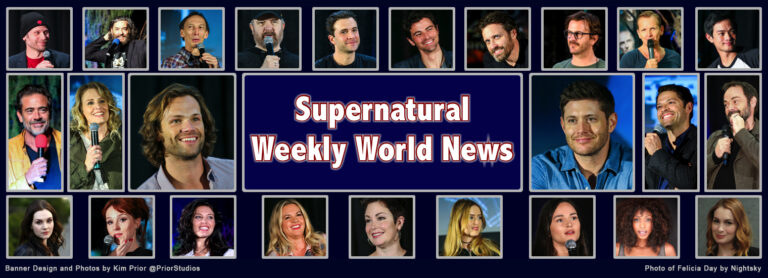

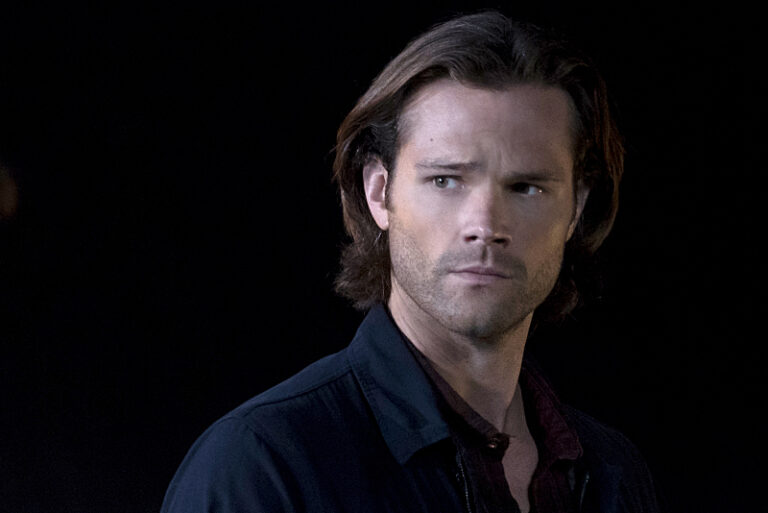
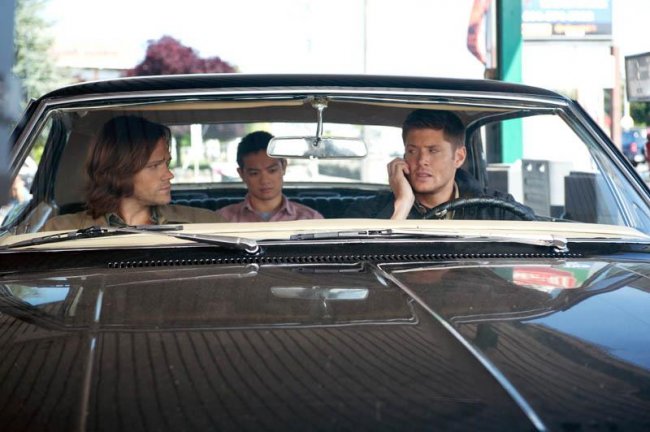

Leave a Reply